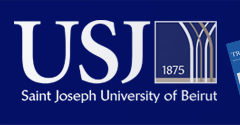Al-Kīmiyā
Keywords
Expert discourse, Education, Neoliberalism, Linguistic mechanisms, Standardization, Legitimacy, Authority
Document Type
Article
Abstract
"Expert" Discourse on Education in Higher Education in the Context of Neoliberalism
This article aims to examine the main linguistic mechanisms employed by the “expert” educational discourse in higher education to reinforce its legitimacy and authority. The central hypothesis of this study posits that the “expert” educational discourse uses pseudo-technical/scientific rhetorical strategies to create an illusion of rationality and performance, with the aim of neutralizing critical and reflective thinking (Denault, 2016; Gobin, 2011). Theoretically, the study adopts a critical multidisciplinary approach that integrates socio-pragmatics, linguistic anthropology, political philosophy, and critical sociology of organizations. Methodologically, the study is based on a “hermeneutic” approach (Charaudeau, 2018) that seeks to explore the various discursive mechanisms used by the “expert” educational discourse and their psychological-pragmatic impact on the receiving audience. It analyzes the content, key stakeholders, and power dynamics to understand how the discourse shapes educational norms and models. The findings often show that this type of discourse relies on technical and scientific rhetoric to strengthen its legitimacy and assert credibility with the public. Expert discourse, grounded in utilitarian and pragmatic reasoning, tends to adopt a technocratic and uniform approach, shaped primarily by a techno-economic paradigm. Consequently, it often sidelines the critical and contested dimensions that are central to academic and scientific debate.
Résumé
Cet article a pour objectif d’examiner les principaux mécanismes langagiers auxquels recourt souvent le discours éducatif universitaire « expert » afin de renforcer sa légitimité et son autorité. L’hypothèse centrale de cette étude soutient que le discours universitaire « expert » utilise une rhétorique langagière quasi technico-scientifique pour instaurer une illusion de rationalité et de performance, dans le but de désorienter la pensée critique et de neutraliser l’esprit démocratique (Denault, 2016 ; Gobin, 2011). D’un point de vue théorique, la présente étude s’inscrit dans une optique critique pluridisciplinaire intégrant à la fois la socio-pragmatique, l’anthropologie linguistique, la philosophie politique et la sociologie critique des organisations. Sur le plan méthodologique, cette étude est fondée sur une approche « herméneutique » (Charaudeau, 2018) ayant pour objectif d’explorer les différents mécanismes discursifs utilisés par le discours éducatif « expert » et leur impact psychologique et pragmatique sur l’instance réceptrice. Elle combine l’analyse du contenu, des acteurs et des relations de pouvoir pour comprendre comment ce discours influence les normes et modèles éducatifs. Il ressort généralement de ce travail que le modèle expert puise dans une rhétorique technique et scientifique de manière à renforcer sa légitimité et asseoir son pouvoir symbolique vis-à-vis du public. En s’appuyant sur des arguments utilitaires et pragmatiques, la parole experte adopte une perspective technocratique et uniformisante, marquée par la primauté d’un paradigme techno-économique, au détriment de la dimension critique et controversée du discours scientifique et académique.
Recommended Citation
Aboudi, Youssef
(2025)
"Le discours éducatif « expert » dans l’enseignement supérieur à l’épreuve du néolibéralisme,"
Al-Kīmiyā, (26), 63-87.
Available at:
https://e-journals.usj.edu.lb/alkimiya/vol26/iss26/5
Included in
International and Intercultural Communication Commons, Language Interpretation and Translation Commons, Linguistics Commons


